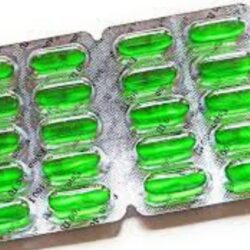Description
Introduction
Coversyl 4mg Tablet can be prescribed either alone or in combination with other medicines. It should be taken on an empty stomach. This medicine should be taken at the same time each day to get the most benefit. It is important to continue taking it regularly even if you feel well or even if your blood pressure is controlled. Most people with high blood pressure do not feel ill, but if you stop taking this medicine, your condition could get worse. This medicine is considered safe for long-term use.
Making some changes in your lifestyle will also help lower your blood pressure. These may include regular exercise, losing weight, smoking cessation, reducing alcohol intake, and reducing the amount of salt in your diet as advised by your doctor. The most common side effects of this medicine include decreased blood pressure, cough, the increased potassium level in blood, fatigue, weakness, and dizziness. Most of these are temporary and resolve with time. Talk to your doctor if any of the side effects bother you or do not go away.
Before taking this medicine, let your doctor know if you have any kidney or liver problems. Pregnant or breastfeeding mothers should also consult their doctor before taking it. Your doctor may check your kidney function, blood pressure, and potassium levels in your blood at regular intervals while you are taking this medicine.
Uses of Coversyl Tablet
- Hypertension (high blood prssure)
- Prevention of heart attack and stroke
- Heart failure
Benefits of Coversyl Tablet
In Hypertension (high blood pressure)
In Prevention of heart attack and stroke
In Heart failure
Side effects of Coversyl Tablet
Common side effects of Coversyl
- Decreased blood pressure
- Cough
- Increased potassium level in blood
- Fatigue
- Weakness
- Dizziness
How to use Coversyl Tablet
How Coversyl Tablet works
Safety advice

Alcohol

Pregnancy

Breast feeding

Driving
Coversyl 4mg Tablet usually does not affect alertness but dizziness or weakness due to low blood pressure may occur in some patients. This may affect your driving ability.

Kidney
Caution should be advised in patients with renal impairment.

Liver
Inform your doctor if you develop any signs and symptoms of jaundice while taking this medicine.






Reviews
There are no reviews yet.